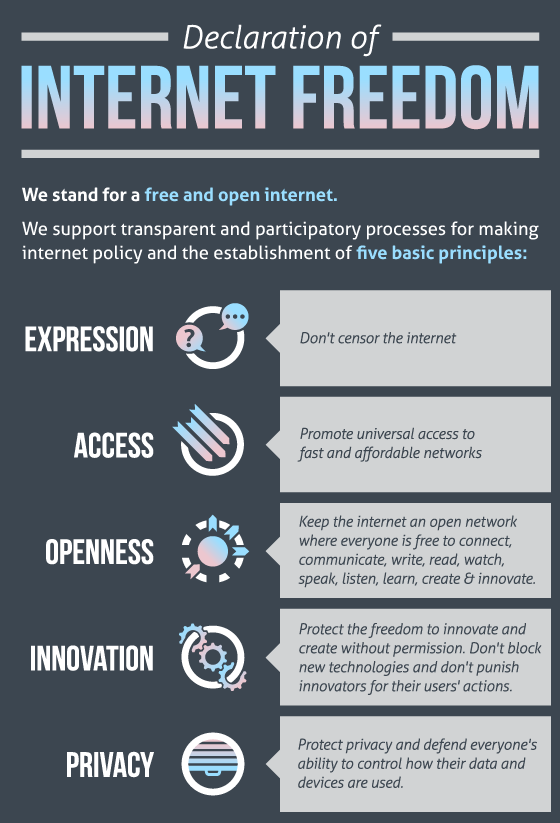Lessig’s analogy between legal and computer code is one that we should explore a little more deeply. We are caught in a seemingly intractable pull between digital modes of expression that push the boundaries of copyright, and a content industry (with government support) that pushes for even stronger copyright protection. If copyright were a computer program, we might call this a “bug.”
Other than the American Library Association, the Electronic Frontier Foundation has perhaps done the most to give “the public” a seat at the copyright law negotiating table (as the 1976 Copyright Act is continually being revised through legislation and Executive action). From the outside, however, the organization appears to be a bit “old school.” The model of donating money to fund lawyers to mount defenses and to argue at the copyright table, in my opinion has a limited value. Additionally, the number of issues that the EFF involves themselves in (the list of their causes is here, on the right) perhaps waters down their ability to fight specific fights on the intellectual property front.
There are, however, a large number of people, lawyers, and scholars who are interested in each of these issues. In many cases, their interest extends to expertise and perhaps passion about these issues. I see this as a great, untapped resource.
In my work with open source communities (most specifically, Drupal), I have seen how a hive mind can attack extremely complex and systemic problems. Often, only one or two people have a grasp on a full project. Yet, a large community is available to identify existing bugs, suggest (and debate!) how to fix them, and to actually do the work of making changes.
Copyright (in addition to all of the other issues the EFF is involved in) is a similarly complex problem, but perhaps one where more coordinated action might have more success in bringing true change to the law. To use another analogy, the “linux approach” to organizing multiple communities of interest to work together on individual issues might work better than the “microsoft approach” of unilaterally attempting to speak for the public interest.
As Litman said some years ago, “our copyright policy is becoming our information policy.” Something as important and complex as an information policy is worth distributing the workload on — and I think the EFF is a group with enough clout to make it happen. Funding lawyers for legal defenses is absolutely necessary, but the need for that defense will decrease if a coordinated public outcry succeeds in changing the law.
 Earlier today, “the internet” posed a Declaration of Internet Freedom.
Earlier today, “the internet” posed a Declaration of Internet Freedom. A few days ago, the tech advocacy group
A few days ago, the tech advocacy group